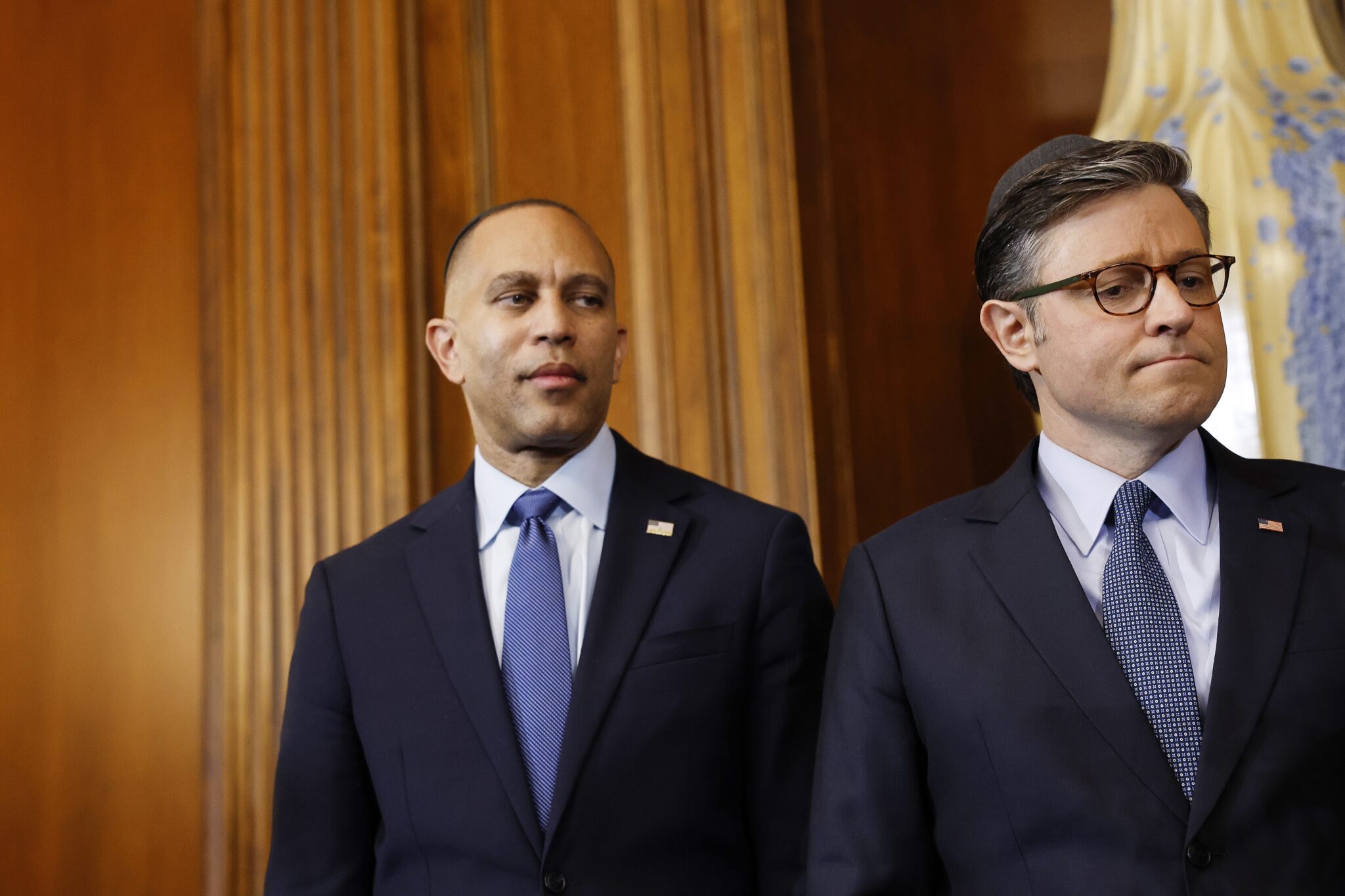
House Republicans Fail to Pass Stopgap Spending Bill, Increasing Risk of Government Shutdown
WASHINGTON, D.C. – The U.S. House of Representatives failed to pass a Republican-backed stopgap spending bill on Thursday, December 19th, 2024, significantly increasing the likelihood of a partial government shutdown beginning at midnight on Friday. The 174-235 vote came just hours after GOP leadership released a revised version of the bill, following the rejection of the initial proposal by President-elect Donald Trump and his allies. The vote breakdown revealed a stark partisan divide: 38 Republicans and 197 Democrats opposed the measure, with only two Democrats voting in favor and one voting “present.”
The Republicans attempted to pass the bill under a “suspension of the rules” procedure, requiring a two-thirds majority. While President-elect Trump endorsed this revised version, which included a two-year debt limit suspension, the necessary support was not secured. House GOP leaders may now attempt passage under a standard rule requiring only a simple majority, though this path is less certain.
House Appropriations Chairman Tom Cole (R-Okla.) argued the bill’s necessity in averting a shutdown and delivering disaster relief. He emphasized the urgent need for aid to states and communities impacted by recent natural disasters, stating that recovery efforts would extend for months, or even years.
This assertion was countered by Rep. Rosa DeLauro (D-Conn.), the top Democrat on the Appropriations Committee, who criticized the Republicans for abandoning a previously negotiated bipartisan agreement. She highlighted the lack of Democratic input in the final bill, emphasizing that government funding requires compromise and bipartisan support. DeLauro further criticized the bill for removing key provisions aimed at limiting pharmaceutical company influence and protecting American jobs and intellectual property from being diverted to China.
The White House also condemned the Republican proposal. Press Secretary Karine Jean-Pierre issued a statement accusing the GOP of prioritizing “billionaire benefactors” over hardworking Americans. The statement characterized the bill as a giveaway to billionaires at the expense of critical programs like Social Security and Head Start, contrasting it with a bipartisan agreement supported by President Biden that would address prescription drug costs and combat job offshoring to China.
Details of the Failed Spending Bill
The failed stopgap spending package would have funded the government until mid-March, providing approximately $100 billion in additional disaster relief. It also included a two-year suspension of the debt limit, extending it to January 30, 2027, and a deadline extension to September 2025 for the completion of the overdue farm bill. President-elect Trump publicly praised the bill, emphasizing its provisions for disaster relief and debt limit suspension.
The bill’s creation followed a tumultuous 48-hour period triggered by Elon Musk’s call for GOP lawmakers to reject the initial spending package. President-elect Trump subsequently demanded the inclusion of debt limit provisions or its complete removal from the bill, introducing further complexities at the eleventh hour. The final, 116-page version was significantly shorter than the initial 1,547-page proposal, omitting numerous provisions, including one allowing year-round sales of 15% ethanol blended gasoline. Significantly, it also did not include a provision preventing Congressional cost-of-living adjustments, meaning lawmakers would receive a 3.8% pay raise, increasing their annual salary to $180,600.
The proposed disaster relief funding totaled tens of billions of dollars, with substantial allocations for the Federal Emergency Management Agency (FEMA) and the Department of Agriculture (USDA). The USDA would have received $33.5 billion, including $21 billion for disaster assistance and $10 billion for economic assistance to farmers and producers. Other agencies, including the Department of Homeland Security, Department of Transportation, Department of Housing and Urban Development, the Forest Service, the National Park Service, the Defense Department, the Army Corps of Engineers, and the Small Business Administration would also have received significant funding for disaster recovery and related efforts.
Senate Republicans Threaten Filibuster
Before the House vote, Senators Thom Tillis (R-N.C.) and Lindsey Graham (R-S.C.) threatened a talking filibuster in the Senate to delay any stopgap funding measure lacking substantial disaster aid. They, along with Senator Ted Budd (R-N.C.), stressed the importance of retaining the approximately $100 billion in emergency disaster relief, rejecting calls within their own party to offset the cost. They argued that disaster aid shouldn’t be subjected to typical fiscal responsibility concerns during a crisis. Senator Graham further emphasized the need for bipartisan support, acknowledging that even with Republican control of both chambers next year, Democratic votes will be essential for passing spending bills.
The potential consequences of a government shutdown, beginning December 21st, include disruptions to federal services, unpaid federal employees, and potential delays or interruptions in disaster relief efforts. The American Federation of Government Employees (AFGE) expressed concern about the impact on federal workers responsible for critical services.
(Note: The provided text was largely repetitive. This response consolidates and restructures the information for clarity and improved readability.)

